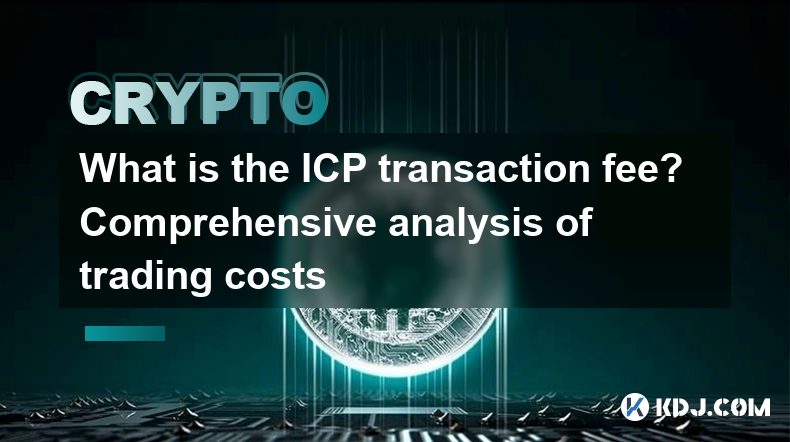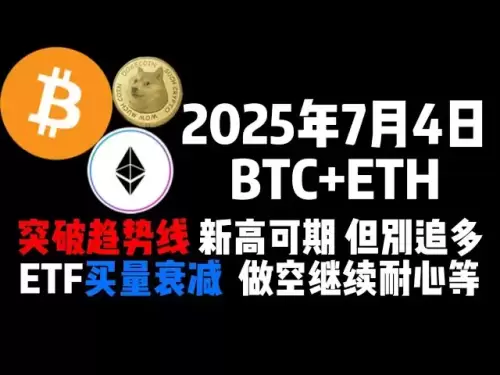-
 Bitcoin
Bitcoin $108,043.3894
-1.71% -
 Ethereum
Ethereum $2,519.1878
-3.09% -
 Tether USDt
Tether USDt $1.0004
-0.01% -
 XRP
XRP $2.2231
-2.72% -
 BNB
BNB $655.3607
-1.06% -
 Solana
Solana $148.3620
-2.84% -
 USDC
USDC $1.0000
0.00% -
 TRON
TRON $0.2838
-0.37% -
 Dogecoin
Dogecoin $0.1648
-4.79% -
 Cardano
Cardano $0.5759
-3.97% -
 Hyperliquid
Hyperliquid $38.4598
-5.19% -
 Sui
Sui $2.9005
-4.22% -
 Bitcoin Cash
Bitcoin Cash $481.1531
-3.80% -
 Chainlink
Chainlink $13.1936
-4.50% -
 UNUS SED LEO
UNUS SED LEO $9.0471
0.41% -
 Avalanche
Avalanche $17.9444
-4.20% -
 Stellar
Stellar $0.2378
-2.60% -
 Toncoin
Toncoin $2.7850
-3.38% -
 Shiba Inu
Shiba Inu $0.0...01148
-3.75% -
 Litecoin
Litecoin $87.3159
-3.73% -
 Hedera
Hedera $0.1557
-3.02% -
 Monero
Monero $314.0980
-1.98% -
 Polkadot
Polkadot $3.3909
-5.10% -
 Dai
Dai $1.0001
0.00% -
 Ethena USDe
Ethena USDe $1.0002
-0.02% -
 Bitget Token
Bitget Token $4.4147
-3.74% -
 Uniswap
Uniswap $6.9933
-9.59% -
 Pepe
Pepe $0.0...09661
-6.72% -
 Aave
Aave $264.1417
-6.16% -
 Pi
Pi $0.4705
-5.23%
What is the ICP transaction fee? Comprehensive analysis of trading costs
The ICP transaction fee is a fixed 0.0001 ICP per standard transaction, offering predictability and cost-effectiveness compared to fluctuating fees on Bitcoin and Ethereum.
May 02, 2025 at 10:35 am

The Internet Computer Protocol (ICP) has garnered significant attention within the cryptocurrency community due to its innovative approach to decentralizing the internet. One critical aspect that potential users and investors consider is the transaction fee associated with ICP. Understanding the ICP transaction fee is essential for anyone looking to engage with the platform, as it directly impacts the cost of trading and using the network. This article provides a comprehensive analysis of the trading costs associated with ICP, exploring various facets of the fee structure and its implications.
Understanding ICP Transaction Fees
The ICP transaction fee is the amount of ICP tokens required to process transactions on the Internet Computer network. These fees are crucial for maintaining the network's operations and incentivizing participants to validate and process transactions. Unlike traditional blockchain networks where fees can fluctuate significantly based on network congestion, the ICP network aims to provide a more predictable fee structure.
The fee for a standard transaction on the ICP network is set at a fixed rate. As of the latest data, the standard transaction fee is approximately 0.0001 ICP per transaction. This fixed rate is designed to provide users with a clear understanding of the costs involved in using the network, making it easier to budget and plan for transactions.
Factors Influencing ICP Transaction Fees
Several factors can influence the ICP transaction fee, although the primary determinant is the type of transaction being conducted. For instance, simple transfers between wallets incur the standard fee, while more complex transactions, such as smart contract executions, may incur higher fees due to the additional computational resources required.
- Type of Transaction: Simple transfers have the lowest fees, while smart contract interactions may have higher costs.
- Network Load: Although the fee structure is designed to be predictable, periods of high network activity could potentially lead to slight variations in processing times, though not necessarily in fees.
- Complexity of Operations: Transactions that require more computational power or storage on the network will have higher associated fees.
Comparing ICP Transaction Fees to Other Cryptocurrencies
When evaluating the ICP transaction fee, it's helpful to compare it with other cryptocurrencies to gain a better perspective on its cost-effectiveness. For instance, Bitcoin's transaction fees can range significantly, often reaching several dollars during peak times, while Ethereum's fees have been known to surge during periods of high demand for its network.
- Bitcoin: Average transaction fees can be anywhere from $1 to $30 or more, depending on network congestion.
- Ethereum: Fees can range from a few cents to several dollars, with gas prices fluctuating based on network demand.
- ICP: With a fixed fee of 0.0001 ICP per standard transaction, the cost remains consistent, providing a clear advantage in terms of predictability.
This comparison highlights that the ICP transaction fee is relatively low and stable, making it an attractive option for users seeking cost-effective transactions.
How to Calculate ICP Transaction Costs
Calculating the ICP transaction fee is straightforward due to its fixed nature. Users need to multiply the number of transactions they plan to conduct by the fee per transaction. For example, if a user plans to make 10 standard transactions, the total cost would be:
- 10 transactions 0.0001 ICP per transaction = 0.001 ICP*
For more complex transactions, such as smart contract interactions, users should consult the specific fee structure provided by the ICP network, as these may vary based on the computational resources required.
Impact of ICP Transaction Fees on Users
The ICP transaction fee has a direct impact on users, influencing their decision-making process regarding the frequency and type of transactions they conduct on the network. A low and predictable fee structure can encourage more frequent use of the network, as users can better anticipate their costs.
- Cost Efficiency: The fixed fee makes it easier for users to manage their expenses, particularly for those who engage in numerous small transactions.
- Budgeting: Users can plan their transactions more effectively, knowing exactly how much each will cost.
- Adoption: A stable and low fee environment can attract more users to the ICP network, fostering greater adoption and growth.
Strategies for Minimizing ICP Transaction Fees
While the ICP transaction fee is already relatively low, users can employ certain strategies to further minimize their costs:
- Batching Transactions: Where possible, users can combine multiple transactions into a single operation, reducing the number of fees incurred.
- Using Efficient Smart Contracts: For those interacting with smart contracts, optimizing the code to reduce computational requirements can lower the associated fees.
- Timing Transactions: Although the fees are fixed, users can still benefit from timing their transactions during periods of lower network activity to ensure faster processing.
Frequently Asked Questions
Q: Can the ICP transaction fee change over time?
A: While the current fee structure is designed to be stable, the ICP network's governance model allows for potential adjustments to the fee in the future. Any changes would be subject to community approval and aimed at maintaining the network's health and efficiency.
Q: Are there any exemptions or discounts available for ICP transaction fees?
A: At present, there are no exemptions or discounts for standard transaction fees on the ICP network. However, certain network participants, such as node operators, may receive rewards that can offset their costs.
Q: How does the ICP transaction fee compare to other decentralized platforms?
A: Compared to other decentralized platforms, the ICP transaction fee is notably low and fixed, offering a clear advantage in terms of predictability and cost-effectiveness. Platforms like Ethereum, with variable gas fees, can be more expensive and less predictable.
Q: What happens if the ICP transaction fee becomes too high for users?
A: If the ICP transaction fee were to increase significantly, it could impact user adoption and the network's overall attractiveness. However, the governance model of ICP allows for community-driven adjustments to ensure fees remain reasonable and aligned with the network's goals.
Disclaimer:info@kdj.com
The information provided is not trading advice. kdj.com does not assume any responsibility for any investments made based on the information provided in this article. Cryptocurrencies are highly volatile and it is highly recommended that you invest with caution after thorough research!
If you believe that the content used on this website infringes your copyright, please contact us immediately (info@kdj.com) and we will delete it promptly.
- Bitcoin's Pattern Break: Are HODLers the Key to the Next Surge?
- 2025-07-04 18:50:12
- Bitcoin Price, Trump's Bill, and the $150K Dream: A NYC Take
- 2025-07-04 19:50:12
- Ethereum, LILPEPE, and the July Bounce: Will Pepe Steal ETH's Thunder?
- 2025-07-04 19:10:12
- Binance Institutional Loans: Unlocking 4x Leverage and Zero Interest for Whales
- 2025-07-04 19:15:12
- Bitcoin Bull Run: Analysts Eye Peak in Late 2025?
- 2025-07-04 19:20:13
- Pepe Indicators, Bullish Forecast: Can the Meme Coin Rally?
- 2025-07-04 19:25:12
Related knowledge

How to customize USDT TRC20 mining fees? Flexible adjustment tutorial
Jun 13,2025 at 01:42am
Understanding USDT TRC20 Mining FeesMining fees on the TRON (TRC20) network are essential for processing transactions. Unlike Bitcoin or Ethereum, where miners directly validate transactions, TRON uses a delegated proof-of-stake (DPoS) mechanism. However, users still need to pay bandwidth and energy fees, which are collectively referred to as 'mining fe...

USDT TRC20 transaction is stuck? Solution summary
Jun 14,2025 at 11:15pm
Understanding USDT TRC20 TransactionsWhen users mention that a USDT TRC20 transaction is stuck, they typically refer to a situation where the transfer of Tether (USDT) on the TRON blockchain has not been confirmed for an extended period. This issue may arise due to various reasons such as network congestion, insufficient transaction fees, or wallet-rela...

How to cancel USDT TRC20 unconfirmed transactions? Operation guide
Jun 13,2025 at 11:01pm
Understanding USDT TRC20 Unconfirmed TransactionsWhen dealing with USDT TRC20 transactions, it’s crucial to understand what an unconfirmed transaction means. An unconfirmed transaction is one that has been broadcasted to the blockchain network but hasn’t yet been included in a block. This typically occurs due to low transaction fees or network congestio...

How to check USDT TRC20 balance? Introduction to multiple query methods
Jun 21,2025 at 02:42am
Understanding USDT TRC20 and Its ImportanceUSDT (Tether) is one of the most widely used stablecoins in the cryptocurrency market. It exists on multiple blockchain networks, including TRC20, which operates on the Tron (TRX) network. Checking your USDT TRC20 balance accurately is crucial for users who hold or transact with this asset. Whether you're sendi...

What to do if USDT TRC20 transfers are congested? Speed up trading skills
Jun 13,2025 at 09:56am
Understanding USDT TRC20 Transfer CongestionWhen transferring USDT TRC20, users may occasionally experience delays or congestion. This typically occurs due to network overload on the TRON blockchain, which hosts the TRC20 version of Tether. Unlike the ERC20 variant (which runs on Ethereum), TRC20 transactions are generally faster and cheaper, but during...

The relationship between USDT TRC20 and TRON chain: technical background analysis
Jun 12,2025 at 01:28pm
What is USDT TRC20?USDT TRC20 refers to the Tether (USDT) token issued on the TRON blockchain using the TRC-20 standard. Unlike the more commonly known ERC-20 version of USDT (which runs on Ethereum), the TRC-20 variant leverages the TRON network's infrastructure for faster and cheaper transactions. The emergence of this version came as part of Tether’s...

How to customize USDT TRC20 mining fees? Flexible adjustment tutorial
Jun 13,2025 at 01:42am
Understanding USDT TRC20 Mining FeesMining fees on the TRON (TRC20) network are essential for processing transactions. Unlike Bitcoin or Ethereum, where miners directly validate transactions, TRON uses a delegated proof-of-stake (DPoS) mechanism. However, users still need to pay bandwidth and energy fees, which are collectively referred to as 'mining fe...

USDT TRC20 transaction is stuck? Solution summary
Jun 14,2025 at 11:15pm
Understanding USDT TRC20 TransactionsWhen users mention that a USDT TRC20 transaction is stuck, they typically refer to a situation where the transfer of Tether (USDT) on the TRON blockchain has not been confirmed for an extended period. This issue may arise due to various reasons such as network congestion, insufficient transaction fees, or wallet-rela...

How to cancel USDT TRC20 unconfirmed transactions? Operation guide
Jun 13,2025 at 11:01pm
Understanding USDT TRC20 Unconfirmed TransactionsWhen dealing with USDT TRC20 transactions, it’s crucial to understand what an unconfirmed transaction means. An unconfirmed transaction is one that has been broadcasted to the blockchain network but hasn’t yet been included in a block. This typically occurs due to low transaction fees or network congestio...

How to check USDT TRC20 balance? Introduction to multiple query methods
Jun 21,2025 at 02:42am
Understanding USDT TRC20 and Its ImportanceUSDT (Tether) is one of the most widely used stablecoins in the cryptocurrency market. It exists on multiple blockchain networks, including TRC20, which operates on the Tron (TRX) network. Checking your USDT TRC20 balance accurately is crucial for users who hold or transact with this asset. Whether you're sendi...

What to do if USDT TRC20 transfers are congested? Speed up trading skills
Jun 13,2025 at 09:56am
Understanding USDT TRC20 Transfer CongestionWhen transferring USDT TRC20, users may occasionally experience delays or congestion. This typically occurs due to network overload on the TRON blockchain, which hosts the TRC20 version of Tether. Unlike the ERC20 variant (which runs on Ethereum), TRC20 transactions are generally faster and cheaper, but during...

The relationship between USDT TRC20 and TRON chain: technical background analysis
Jun 12,2025 at 01:28pm
What is USDT TRC20?USDT TRC20 refers to the Tether (USDT) token issued on the TRON blockchain using the TRC-20 standard. Unlike the more commonly known ERC-20 version of USDT (which runs on Ethereum), the TRC-20 variant leverages the TRON network's infrastructure for faster and cheaper transactions. The emergence of this version came as part of Tether’s...
See all articles

























































































